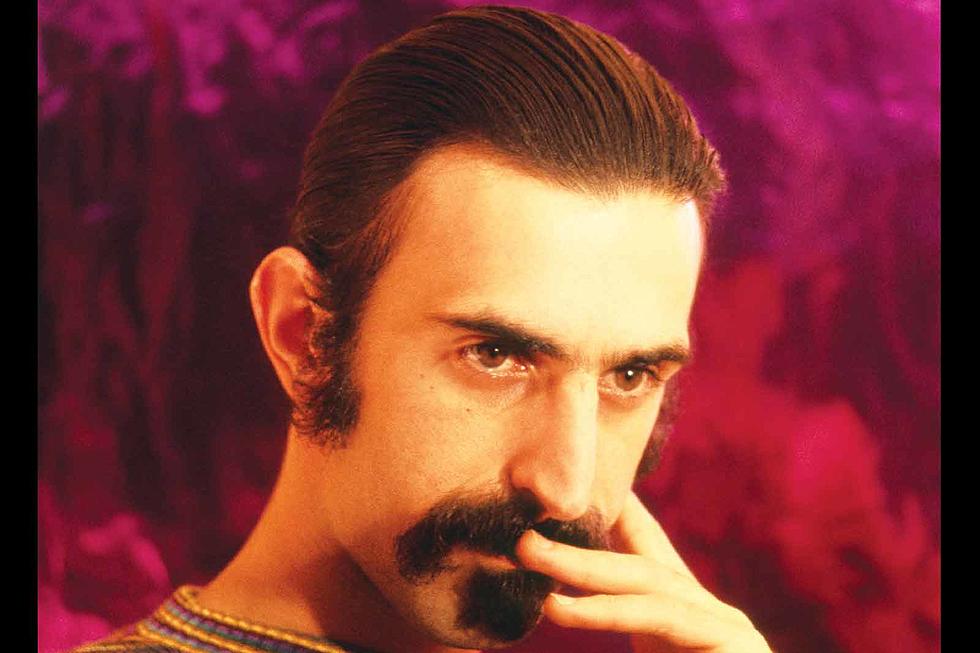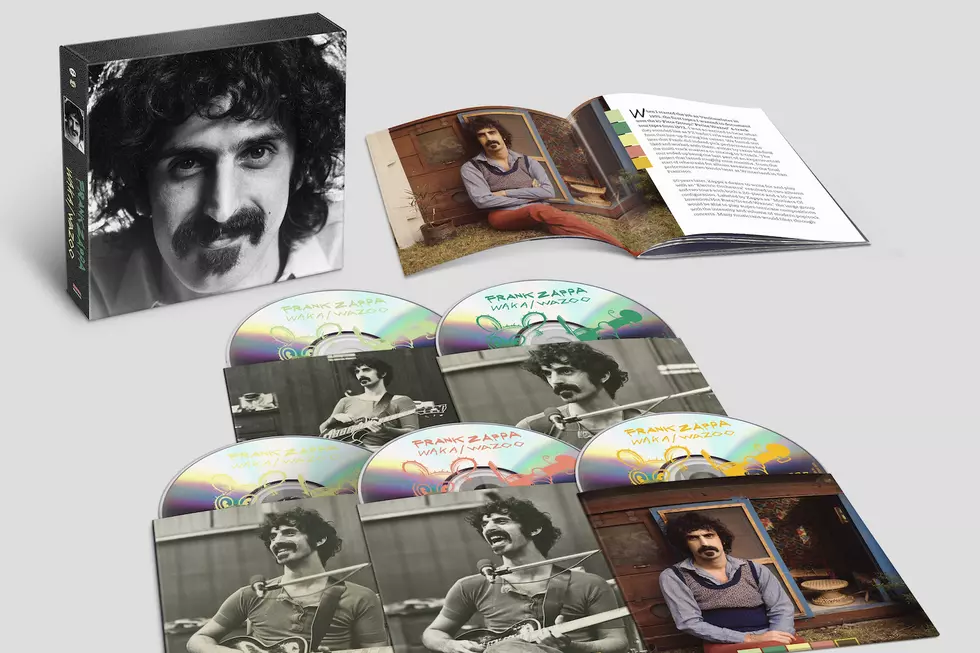
Frank Zappa, ‘Roxy: The Movie': DVD Review
Frank Zappa's long-fabled, newly assembled 1973 concert film, Roxy: The Movie, delivers the composer's requisite goods: robust guitar solos, jazz-fusion interludes, sexual innuendo. But despite all that complexity, the set's most perfect moment is an afterthought. After a massive triple-percussion solo, the maestro waits for his band, telling the audience they'll overdub the track later. As the players shuffle around, an audience member asks what the next song is titled. "CHEEPNIS!" Zappa yells back, launching into that wacky monster movie tribute.
Zappa's compositions are, at turns, complex and confounding, innovative and immature – sprawling rock, jazz, doo-wop, even musique concrete. But above all, he was an entertainer – a key principle emphasized throughout Roxy: The Movie.
Indeed, Zappa never cowered from a challenge, but his three-night stint from December 8 -10, 1973 at Hollywood's Roxy Theater proved quite an obstacle. The shows were filmed using multiple cameras, but technical glitches kept the footage shelved for decades. But now, using modern technology, selections of the material have been spliced together into a seamless concert that enriches the most fertile period of Zappa's creative insanity.
With such a dexterous backing band – keyboardist George Duke, vocalist/woodwind player Napoleon Murphy Brock, bassist Tom Fowler, trombonist Bruce Fowler, tuned percussionist goddess Ruth Underwood and drummers Chester Thompson and Ralph Humphrey – Zappa couldn't go wrong. So he didn't – blowing away the 500-capacity crowd with the warped funk of "Penguin in Bondage" (complete with Zappa's hilarious footwork), the space-jazz assault of "Dog/Meat (The Dog Breath Variations/Uncle Meat," and a wildly mechanized take on proggy alien daydream "Inca Roads."
But, as alluded before, Roxy's music is only half the sublime spectacle. The film trumps the beloved 1974 LP with its added visuals – like the charm of a seated, smirking Zappa, smoking a cigarette, Zappa and Underwood exchanging playful, knowing glances between percussion jabs or Brock's unending supply of soulful smiles. On a technical level, the editors throw in the couple occasional split-screen and some barely noticeable fading – but overall, thankfully, they stay out of the way, lingering the appropriate amount on the players themselves.
"Something terrible has happened," Zappa says at the beginning of the film, highlighting the catastrophe waiting to unfold. How right – yet oh, so wrong – he was.
See Frank Zappa and Other Rockers in the Top 100 Albums of the '60s
This Day in Rock History: October 30
More From Ultimate Classic Rock









